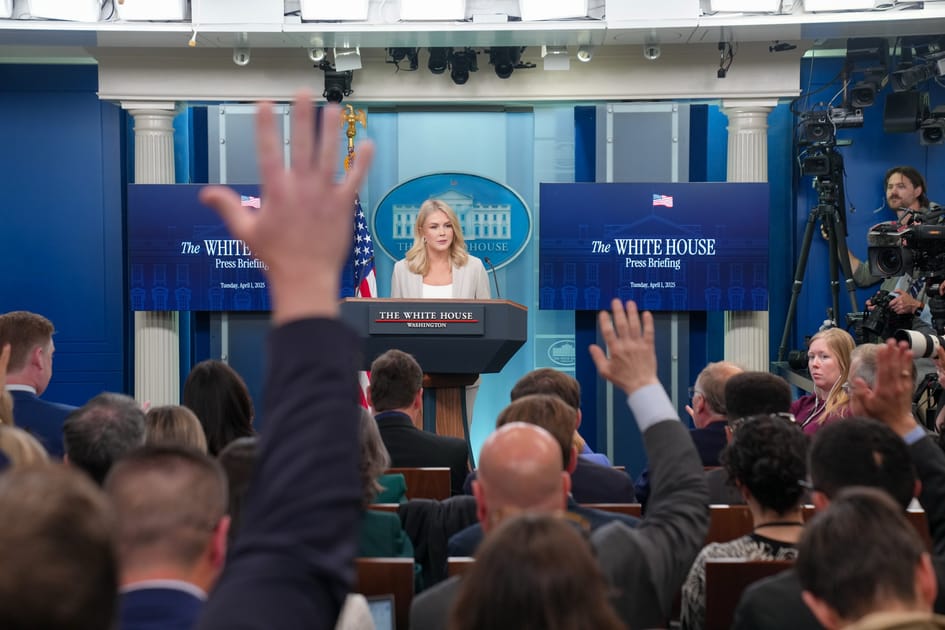Planned Parenthood’s latest annual report shows that nearly 40 percent of its total revenue comes from government sources.
Funding for Planned Parenthood has been a source of legal and legislative contention in recent weeks since the passage of the Republican-backed One Big Beautiful Bill Act.
The abortion provider has received federal funds since the early 1970s through Title X grants, as well as Medicaid reimbursements, for non-abortion services.
According to Planned Parenthood’s 2023–2024 annual report, nearly 40 percent of its total revenue comes from government sources. With yearly government funding of more than $792 million, that equates to a reimbursement total of more than $2 million per day.
According to the report, Planned Parenthood performed 402,230 abortions during the 2023–2024 fiscal year. However, the use of government funds for abortions is prohibited by the Hyde Amendment.
One Big Beautiful Bill Act
The One Big Beautiful Bill Act, the tax and spending package signed by President Donald Trump on July 4, included a provision that temporarily cut all Medicaid funding for nonprofit providers that perform abortions and that took in more than $800,000 in Medicaid reimbursements in fiscal year 2023.
A lawsuit filed by Planned Parenthood after the signing of the bill featured the group’s description of the law’s defunding provision as directed toward “a set made up almost entirely of Planned Parenthood Members.”
Republicans have attempted to cut funding to Planned Parenthood for years, saying no taxpayer funding should go to an organization that provides abortions. To that end, an earlier version of the legislation included a provision that would have defunded the group for 10 years.
However, the funding ban was reduced to one year before the bill received final congressional approval during negotiations on Medicaid reimbursement.
Court Injunctions Uphold Funding
Planned Parenthood filed its complaint on July 7 against the Trump administration, just days after the president signed the One Big Beautiful Bill Act.
In the filing, which went to a Boston federal court, Planned Parenthood called the provision unconstitutional and said it prevented almost 600 health care centers from receiving Medicaid reimbursements.
According to the group, the measure would have “catastrophic consequences” for the centers, which serve more than a million patients annually through Medicaid.
“The true design of the Defund Provision is simply to express disapproval of, attack, and punish Planned Parenthood, which plays a particularly prominent role in the public debate over abortion,” Planned Parenthood stated.
U.S. District Court Judge Indira Talwani issued a temporary restraining order on the same day, halting enforcement of the ban. Talwani said the plaintiff had shown “good cause” to pause its implementation.
Later, in a July 28 ruling, Talwani again blocked the provision and issued a preliminary injunction for the section of the bill that she said targeted Planned Parenthood, which she said constituted a form of punishment.
“Patients are likely to suffer adverse health consequences where care is disrupted or unavailable,” the judge wrote in her order. “In particular, restricting Members’ ability to provide healthcare services threatens an increase in unintended pregnancies and attendant complications because of reduced access to effective contraceptives, and an increase in undiagnosed and untreated [sexually transmitted infections].”
The judge also clarified that the order didn’t ban the government from the regulation of abortions or direct the government to fund them but did block the government from cutting off Medicaid reimbursements to Planned Parenthood during the lawsuit because of a reasonable likelihood that the suit would succeed.
State-Led Litigation
While the federal case continues, some states have taken it upon themselves to weigh in on the issue.
On July 29, more than 20 largely Democratic-led states filed suit against the Trump administration over the efforts to cut funding to Planned Parenthood and similar organizations.
The states called the funding cut unconstitutional and warned that clinics might close because of the restriction.
“This attack isn’t just about abortion,” California Attorney General Rob Bonta said at a press conference. “It’s about denying vulnerable communities access to care they rely on every day.”
New York, Connecticut, and other states, along with the District of Columbia, are also involved in the case, saying it is a retaliation against Planned Parenthood because of its abortion access advocacy and that the measure violates the free speech clause of the First Amendment.
The Department of Health and Human Services (HHS), which is a defendant in the case, defended the challenged provisions of the One Big Beautiful Bill Act.
“States should not be forced to fund organizations that have chosen political advocacy over patient care,” HHS spokesperson Andrew G. Nixon said in an email.
He accused some state attorneys general of seeking to “undermine state flexibility and disregard longstanding concerns about accountability.”
SCOTUS Defined States’ Rights
A June 26 opinion by the Supreme Court, prior to the passage of the One Big Beautiful Bill Act, held that states were allowed to block Planned Parenthood from receiving Medicaid money for services such as contraception and cancer screenings.
The 6–3 decision wasn’t directly about abortion, but it’s expected to affect future lawsuits that seek to keep Medicaid funding in place.
The opinion states that even though Medicaid law allows individuals to choose their provider, the law doesn’t make that choice a right enforceable in court.
“Deciding whether to permit private enforcement poses delicate policy questions involving competing costs and benefits—decisions for elected representatives, not judges,” Justice Neil Gorsuch wrote.
White House spokesman Harrison Fields lauded the decision, saying that it was “a major victory for common sense.”
The Associated Press and Matthew Vadum contributed to this report.
If you found this article interesting, please consider supporting traditional journalism
Our first edition was published 25 years ago from a basement in Atlanta. Today, The Epoch Times brings fact-based, award-winning journalism to millions of Americans.
Our journalists have been threatened, arrested, and assaulted, but our commitment to independent journalism has never wavered. This year marks our 25th year of independent reporting, free from corporate and political influence.
That’s why you’re invited to a limited-time introductory offer — just $1 per week — so you can join millions already celebrating independent news.
















